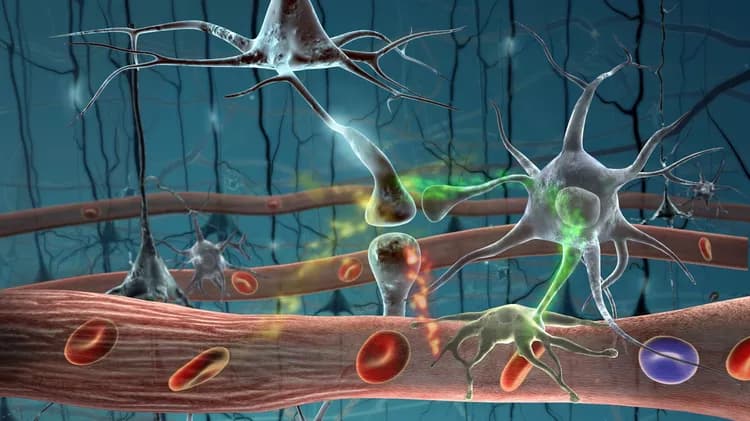
Brain's Immune System Could Be Harnessed To Fight Alzheimer's
A new study appearing in the Journal of Neuroinflammation suggests that the brain's immune system could potentially be harnessed to help clear the amyloid plaques that are a hallmark of Alzheimer's disease.
"This research confirms earlier observations that, when activated to fight inflammation, the brain's immune system plays a role in the removal of amyloid beta," said M. Kerry O'Banion, M.D., Ph.D., a professor in the University of Rochester Department of Neurobiology and Anatomy, the Del Monte Neuromedicine Institute, and the lead author of the study. "We have also demonstrated that the immune system can be manipulated in a manner that accelerates this process, potentially pointing to a new therapeutic approach to Alzheimer's disease."
The findings are the culmination of years of investigation that were triggered when O'Banion and his colleagues made a surprising discovery while studying mouse models of Alzheimer's disease. They observed that amyloid beta plaques -- which scientists believe play a major role in the disease -- were being cleared in animals with chronic brain inflammation.
At the time, the mechanism by which the plaques were being removed was not clear. O'Banion and his colleagues eventually set their sights on microglia, native cells that serve as one the central nervous system's first lines of defense against infection and injury. Microglia are present throughout the brain and spinal cord, are constantly monitoring their environment, and can be switched on or activated to perform different functions such as control inflammation, destroy pathogens, clean up the debris from dead or damaged cells, and seal off the site of an injury.
The researchers conducted a series of experiments to see if they could replicate the phenomenon of amyloid beta clearance absent brain inflammation. This required that they "trick" the microglia into action which was accomplished by injecting a specific protein molecule, a cytokine, into the brain. Cytokines play important roles in cell signaling and the researchers were able to replicate the mechanisms that instruct the microglia to activate an anti-inflammatory response.
Once the microglia were mobilized in mouse models of Alzheimer's disease, the researchers observed a more than 60 percent reduction in amyloid beta in the brain.
"While we still need to fully understand the complexity and potential unintended consequences of this approach, it is clear that microglia play an important role in the removal of amyloid beta from the brain and may represent a novel approach to treating this disease," said O'Banion.
The above post is a redistributed news release provided by University of Rochester Medical Center. Note: Materials may be edited for content and length.
Disclaimer: DoveMed is not responsible for the adapted accuracy of news releases posted to DoveMed by contributing universities and institutions.
Primary Resource:
Cherry, J. D., Olschowka, J. A., & O’Banion, M. K. (2015). Arginase 1+ microglia reduce Aβ plaque deposition during IL-1β-dependent neuroinflammation. Journal of neuroinflammation, 12(1), 1-13.
Related Articles
Test Your Knowledge
Asked by users
Related Centers
Related Specialties
Related Physicians
Related Procedures
Related Resources
Join DoveHubs
and connect with fellow professionals

0 Comments
Please log in to post a comment.